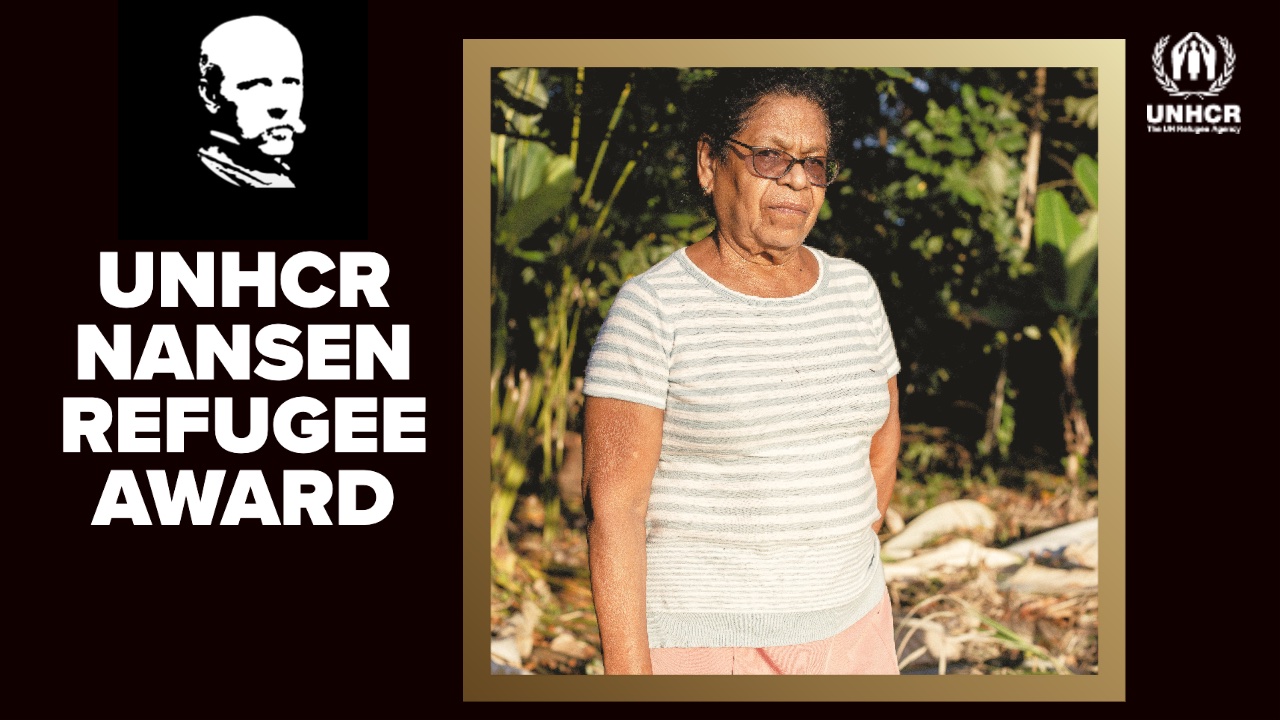Defence class teaches refugee women to fight gender violence
Before her activism resulted in threats that forced her to flee her native Yemen, Layla,* 35, was a passionate defender of female survivors of violence for more than a decade. Now, she and other refugee women in Jordan have learned to defend themselves, thanks to the Middle East’s first all-female self-defence studio.
Forced to marry a man against her will at a very young age, Layla promised herself that she would not sit back while other women went through similar experiences. “I remember seeing my neighbour beaten up by her brother because she refused to get married,” she recalled. “She felt her life was over. I accompanied her to the hospital, and helped her rent a house far from danger.”
This was the first in a long list of acts that ultimately put Layla herself at risk, forcing her to escape to Jordan two years ago for her own safety. “I received daily threats, usually through letters, and more than once strangers waited for me outside my office,” she said. “I know I can never be safe wherever I go, as the people who want to silence me could find me easily.”
Layla attended a class with 25 refugee women of all ages from five different countries at the SheFighter studio in the Jordanian capital Amman. Created in 2012 by Jordanian entrepreneur Lina Khalifeh, the SheFighter technique combines several martial arts and teaches women how to defend themselves against attackers, while building up their self-esteem in the process.
“I received daily threats ... and more than once strangers waited for me outside my office.”
The class was organized by UNHCR, the UN Refugee Agency, as part of its women empowerment activities during the 16 Days of Activism Against Gender-Based Violence. The global campaign runs every year from the International Day for the Elimination of Violence against Women on November 25, through to International Human Rights Day on December 10.
This year, UNHCR Jordan adopted the global campaign theme “Leave No One Behind: end violence against women and girls,” joining worldwide efforts to combat the violence that can have lifelong consequences for women and girls, their families and communities.
The class was a new experience for Layla, who has spent so many years fighting on behalf of others. “Everyone here has a story, and we can share and learn from each other,” she said. “Suffering can create a new woman; suffering created me. Women can change the world and be who they want to be.”
“After the class, women feel more confident, secure and strong physically and psychologically, ready to defend themselves from different violent situations,” explains Batoul, a SheFighter coach. On one of the centre’s walls behind her a slogan reads: Speak up even if your voice shakes.
Globally, around one in three women will experience physical or sexual abuse during their lifetime, according to UN Women, the United Nations organization dedicated to gender equality and the empowerment of women. During times of displacement, the risk of violence against women and girls is exacerbated.
Nadia, 58, is a refugee and former university professor from the Iraqi capital, Baghdad. She was unable to teach during four years of war and was finally forced to seek asylum in Jordan.
“Self-defence classes give refugee women the confidence to believe in their own strength.”
“I am alone, I feel alone,” she said. “When you leave your country as a divorced woman, starting a new life as a refugee is hard.” Nadia surprised herself in the class, finding she was stronger and more agile than she thought. “I learned the weak points of the attackers, and it was a good opportunity to meet new people and discuss topics that affect us all.”
In addition to boosting confidence and self-esteem, practising martial arts is also credited with reducing stress and decreasing feelings of anger and frustration.
In 2017, UNHCR has stepped up its work to prevent and respond to violence against women and girls – including through measures to tackle rape, sexual assault, child marriage, partner violence, sexual exploitation and abuse, and female genital mutilation.
“Refugee women and girls are at a much higher risk of gender-based violence due to displacement, as they often lose their support network in the country of asylum and find themselves in a difficult socio-economic situation,” explained Emilie Page, UNHCR sexual and gender-based violence officer in Jordan.
“Responding to the individual needs of survivors is essential and life-saving, but prevention programs focusing on women’s empowerment are equally important,” she said. “Self-defence classes give refugee women the confidence to believe in their own strength. Their courage is an inspiration to all of us.”
Self-defence classes are part of a wider UNHCR push to empower vulnerable refugee women and girls across the region, and reduce the risks of violence and exploitation they face. The drive includes cash assistance, skills training and provision of safe spaces.
*Names changed for protection reasons.










